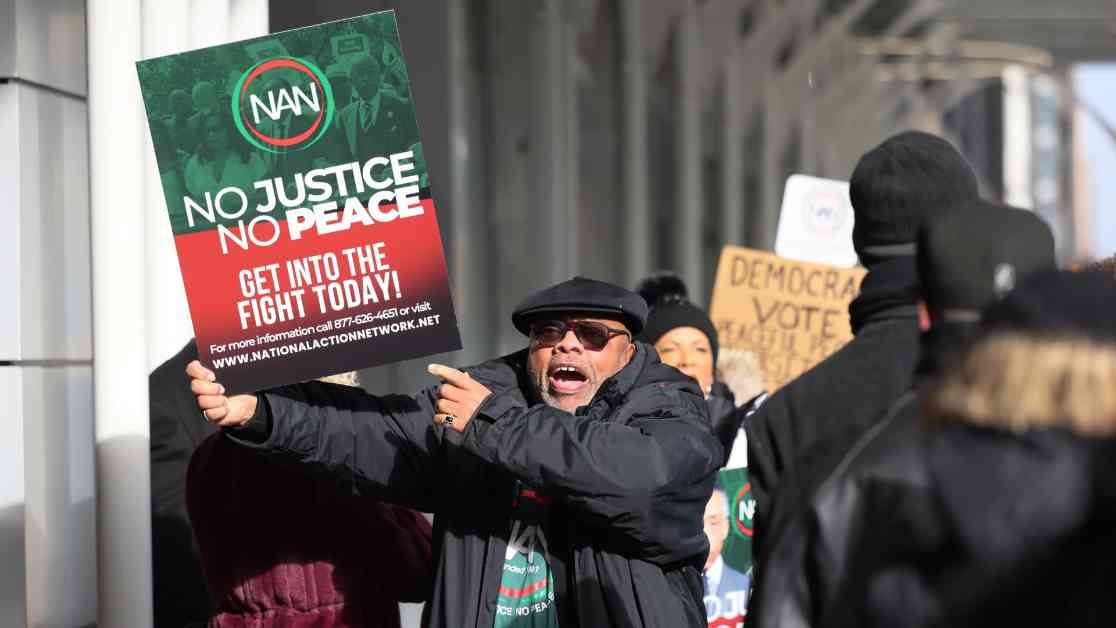Civil Rights Groups Call on Fortune 1000 Companies to Prioritize Diversity, Equity, and Inclusion
In a bold move, twenty civil rights organizations have come together to urge Fortune 1000 companies to prioritize diversity, equity, and inclusion (DEI) initiatives. This call to action follows a concerning trend where several major companies, including Ford, Tractor Supply, and Brown-Forman, have scaled back or completely abandoned their efforts in this crucial area.
The letter sent by the civil rights groups highlights the long-term consequences of abandoning DEI on business success. The authors emphasize the importance of upholding fiduciary responsibility to employees, consumers, and shareholders. By neglecting DEI, companies risk creating less safe and inclusive workplaces for hard-working Americans, ultimately undermining their own performance and reputation.
Impact of Scaling Back DEI Efforts
The pushback against DEI initiatives comes at a critical time when the business world is grappling with the aftermath of a national reckoning over racial injustice. Following the police killing of George Floyd in 2020, many companies ramped up their DEI efforts to address systemic inequalities within their organizations.
Legal experts point to the Supreme Court’s ruling on affirmative action in higher education as a roadmap for targeting private corporations that prioritize diversity among employees, suppliers, and consumers. While some right-wing activists have claimed credit for pressuring companies on social media to make these changes, several corporations have stated that their decision to scale back DEI efforts was in the works long before these recent events.
Consequences of Abandoning DEI
Rural retailer Tractor Supply sparked a trend by severing ties with LGBTQ+ advocacy group the Human Rights Campaign (HRC), a move that was followed by companies like Molson Coors, Harley-Davidson, Ford, and Lowe’s. These companies announced that they would no longer provide data to the HRC’s Corporate Equality Index, a respected benchmark for evaluating how well companies support the LGBTQ+ community.
HRC President Kelley Robinson stressed the business case for diversity in the workplace, citing consumer preferences for brands that support diversity. She highlighted the significant buying power of LGBTQ+ consumers, which amounts to $1.4 trillion, as reported by the National LGBT Chamber of Commerce. Robinson emphasized that moving away from DEI initiatives is not only detrimental to business but also goes against the interests of employees, consumers, and shareholders.
The HRC responded to companies rolling back their DEI commitments by reducing their Corporate Equality Index scores by 25 points. This deduction affected companies like Brown-Forman, Lowe’s, Ford, Molson Coors, Tractor Supply, and John Deere, signaling a significant shift in how these companies are perceived in terms of their support for diversity and inclusion.
The Business Case for DEI
Diversity, equity, and inclusion are not just moral imperatives; they also make good business sense. Research shows that companies with diverse leadership teams outperform their counterparts in terms of financial performance. A survey of large companies revealed that those in the top quartile for gender and ethnic diversity are 12% more likely to outperform others.
On the flip side, companies that lag behind in diversity, equity, and inclusion initiatives underperform by 27%. This disparity underscores the importance of embracing diversity in all its forms to drive innovation, creativity, and ultimately, business success. Employees, consumers, and shareholders are increasingly placing value on companies that prioritize DEI, recognizing its impact on both the bottom line and societal well-being.
Future-proofing Businesses Through Inclusion
As the business landscape evolves, companies must adapt to the changing demographics of both their workforce and consumer base. Gen Z, for example, is a diverse generation with significant purchasing power, making it essential for businesses to cater to their unique needs and preferences. Additionally, the growing disabled population in the United States highlights the importance of creating inclusive workplaces that accommodate individuals with varying abilities.
By embracing diversity, equity, and inclusion, companies can future-proof their operations and position themselves as leaders in their respective industries. Failing to prioritize DEI not only hinders a company’s ability to attract and retain top talent but also alienates diverse consumer segments. Women, people of color, people with disabilities, and the LGBTQ+ community represent substantial buying power that should not be overlooked by businesses seeking to thrive in a competitive market.
In conclusion, the call for Fortune 1000 companies to prioritize DEI is not just a moral imperative but a strategic business decision. By upholding values of diversity, equity, and inclusion, companies can enhance their performance, reputation, and long-term sustainability. It is imperative that business leaders take a stand in support of DEI initiatives and resist pressure from those seeking to undermine the progress made in creating inclusive and equitable workplaces.






















